第32章
(* 7) My lre to J. Jay Sep.24.
(* 8) lre to Carm. Dec. 15.
(* 9) My lre to Jay Nov. 3. lre to J. Adams, Nov. 13.
Our first essay in America to establish a federative government had fallen, on trial, very short of it's object. During the war of Independance, while the pressure of an external enemy hooped us together, and their enterprises kept us necessarily on the alert, the spirit of the people, excited by danger, was a supplement to the Confederation, and urged them to zealous exertions, whether claimed by that instrument, or not. But when peace and safety were restored, and every man became engaged in useful and profitable occupation, less attention was paid to the calls of Congress. The fundamental defect of the Confederation was that Congress was not authorized to act immediately on the people, & by it's own officers. Their power was only requisitory, and these requisitions were addressed to the several legislatures, to be by them carried into execution, without other coercion than the moral principle of duty. This allowed in fact a negative to every legislature, on every measure proposed by Congress; a negative so frequently exercised in practice as to benumb the action of the federal government, and to render it inefficient in it's general objects, & more especially in pecuniary and foreign concerns. The want too of a separation of the legislative, executive, & judiciary functions worked disadvantageously in practice. Yet this state of things afforded a happy augury of the future march of our confederacy, when it was seen that the good sense and good dispositions of the people, as soon as they perceived the incompetence of their first compact, instead of leaving it's correction to insurrection and civil war, agreed with one voice to elect deputies to a general convention, who should peaceably meet and agree on such a constitution as "would ensure peace, justice, liberty, the common defence & general welfare."This Convention met at Philadelphia on the 25th. of May '87.
It sate with closed doors and kept all it's proceedings secret, until it's dissolution on the 17th. of September, when the results of their labors were published all together. I received a copy early in November, and read and contemplated it's provisions with great satisfaction. As not a member of the Convention however, nor probably a single citizen of the Union, had approved it in all it's parts, so I too found articles which I thought objectionable. The absence of express declarations ensuring freedom of religion, freedom of the press, freedom of the person under the uninterrupted protection of the Habeas corpus, & trial by jury in civil as well as in criminal cases excited my jealousy; and the re-eligibility of the President for life, I quite disapproved. I expressed freely in letters to my friends, and most particularly to Mr. Madison & General Washington, my approbations and objections. How the good should be secured, and the ill brought to rights was the difficulty. To refer it back to a new Convention might endanger the loss of the whole. My first idea was that the 9. states first acting should accept it unconditionally, and thus secure what in it was good, and that the 4.
last should accept on the previous condition that certain amendments should be agreed to, but a better course was devised of accepting the whole and trusting that the good sense & honest intentions of our citizens would make the alterations which should be deemed necessary.
Accordingly all accepted, 6. without objection, and 7. with recommendations of specified amendments. Those respecting the press, religion, & juries, with several others, of great value, were accordingly made; but the Habeas corpus was left to the discretion of Congress, and the amendment against the reeligibility of the President was not proposed by that body. My fears of that feature were founded on the importance of the office, on the fierce contentions it might excite among ourselves, if continuable for life, and the dangers of interference either with money or arms, by foreign nations, to whom the choice of an American President might become interesting. Examples of this abounded in history; in the case of the Roman emperors for instance, of the Popes while of any significance, of the German emperors, the Kings of Poland, & the Deys of Barbary. I had observed too in the feudal History, and in the recent instance particularly of the Stadtholder of Holland, how easily offices or tenures for life slide into inheritances. My wish therefore was that the President should be elected for 7. years & be ineligible afterwards. This term I thought sufficient to enable him, with the concurrence of the legislature, to carry thro' & establish any system of improvement he should propose for the general good.
But the practice adopted I think is better allowing his continuance for 8. years with a liability to be dropped at half way of the term, making that a period of probation. That his continuance should be restrained to 7. years was the opinion of the Convention at an early stage of it's session, when it voted that term by a majority of 8.
against 2. and by a simple majority that he should be ineligible a second time. This opinion &c. was confirmed by the house so late as July 26. referred to the committee of detail, reported favorably by them, and changed to the present form by final vote on the last day but one only of their session. Of this change three states expressed their disapprobation, N. York by recommending an amendment that the President should not be eligible a third time, and Virginia and N.